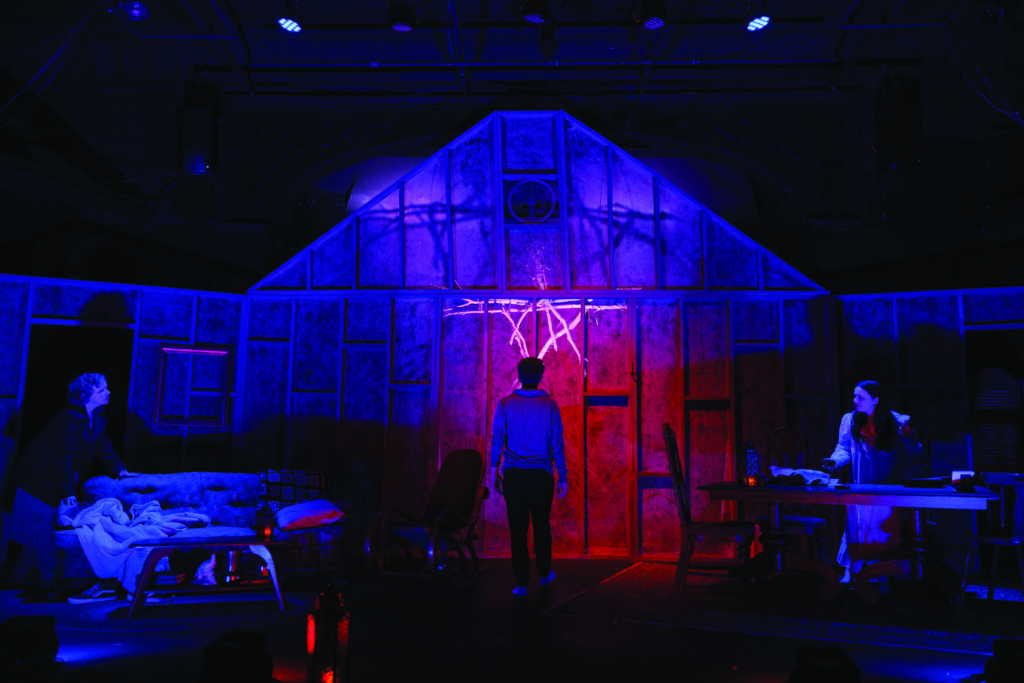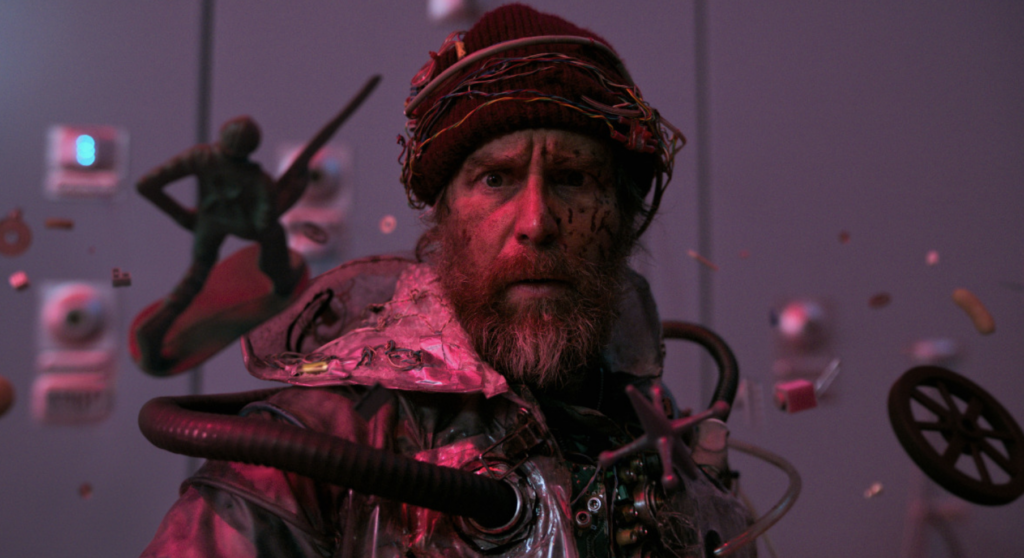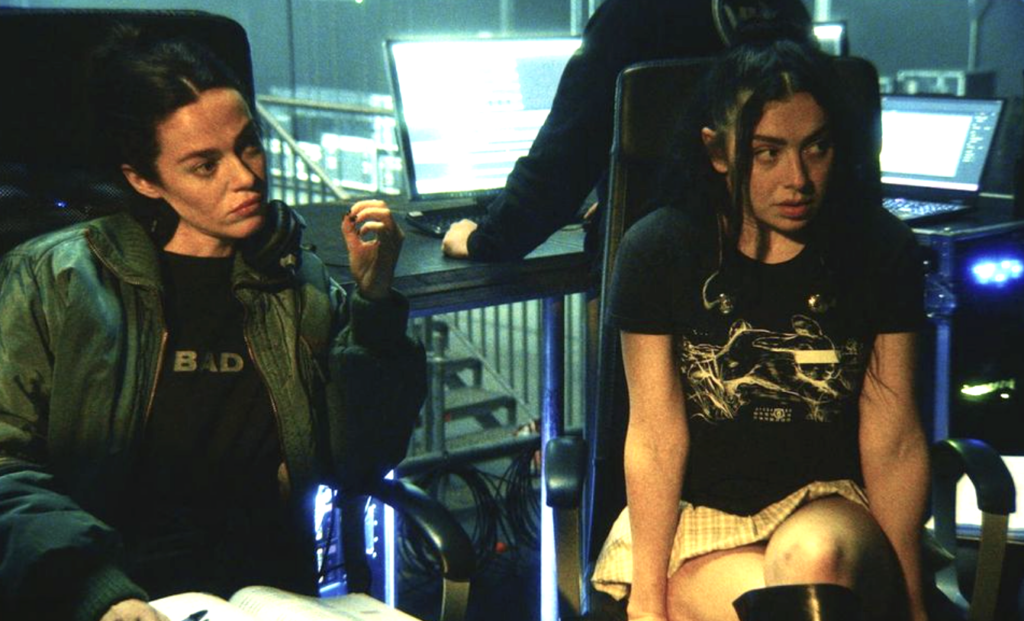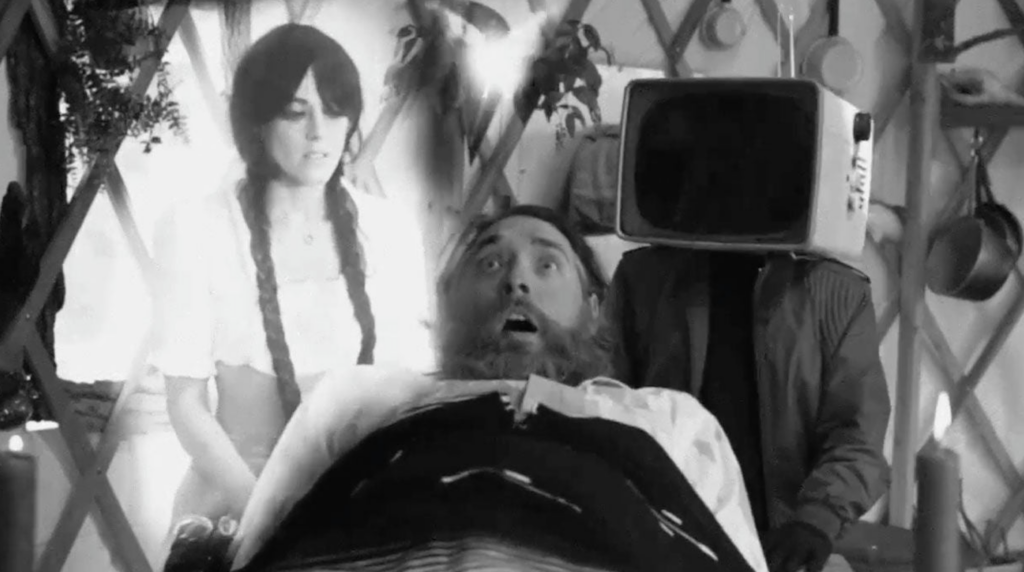Home on the Strange: Playwright Ryan Bernsten stages queer-centric thrillers that perform therapeutic bloodletting on ‘Midwest nice’
We Midwesterners inherently possess a superhuman ability to keep everything simmering beneath the surface. Whether it’s smiling and nodding about grandma’s hot political takes, or pretending like your uncle’s new girlfriend is age-appropriate, the elephant in the room seldom gets addressed. It’s our passive-aggressive pleasant superpower, and it can come back to bite us in the end.
Ryan Bernsten takes the painstakingly, polite nature of the Midwest and writes plays that end in cathartic bloodbaths—or where, at the very least, the unspoken is shouted, which, for this region, can feel like its own brand of violence. Through the lens of queer/outsider characters in places where everyone needs to feel like they belong, Bernsten’s oeuvre is quickly gaining national attention for telling hyper-personal Missouri kid tales in a universally painful way.
The holidays tend to bring the worst out of everyone—WE ARE BLOOD allows us to peer into a grief-stricken family’s dinner. Though it begins with the typical passive-aggressive comments made about money and politics, the dark family secrets are forced to the forefront. Every character faces a personal horror: losing their fortune, secret affairs, feeling lost, and being possessed by their father’s spirit. Bernsten’s leading man brings a fresh take on queer characters.
“Raymond is a lost young man. Nothing is more dangerous than someone who’s lost and doesn’t know what they want,” Bernsten says. Having inherited a patriarchal world, Raymond’s feelings of how his masculinity and queerness intersect leave him desperate for purpose. “He literally conjured his dead father’s spirit to give him some guidance.”
THE NEW ORDER is almost as if The Beguiled happened in Ethel Cain’s house in Nebraska, but somehow even bloodier. Haunted with visions of three chilling nuns, Anna possesses a certain rage only capable of a teenage girl. After a trigger-happy president left the world in a nuclear fallout, Anna’s hopelessly submissive mother opened their home to a displaced couple expecting a baby.
“I think with the birth of a new child or new generation, there’s hope that it’s going to get better. We’re going to fix the mistakes of the past,” Bernsten says. That glimmer of hope leads to the characters losing their sanity to try and capture some for themselves.
What seems like an intense writer’s retreat and an opportunity for career advancement, turns into a psychological house of mirrors in NOVEL. The leads—a neurotic gay man and a self-assured woman—compete for an acclaimed horror author’s approval. Even though this novelist’s teaching methods include lacing food with psychedelics and torturing his students close to death, his validation is still sought after.
Bernsten discusses this need for acceptance. “Ambition can become psychopathic,” he says. The play highlights the hypocrisy of institutions’ power. For example, at a job, if a job decides to lay you off, that’s what happens. But if your boss finds out that you’re looking for other jobs, you’re a ‘bad employee’ and we’ve all just made our peace with that?
Throughout his works, Bernsten covers patriarchy, feminism, nuclear fallout, and questionable paternity. His draw toward darker productions began when he was eight, after his father told him the plot of The Amityville Horror. Bernsten responded by staging a one act adaptation with the neighborhood kids. Their parents weren’t thrilled.
“So I guess it’s in my blood, I still want to traumatize the neighborhood,” he says. A quote from NOVEL describes people’s attraction toward morbidity: “There is nothing more amusing than someone in pain.”
Bernsten’s queer horror men break through many social expectations, but his female characters also show immense depth and complexity. Both queer people and women tend to be written as static characters, boxed into their stereotypical roles.
“Women are not a monolith. No one is a monolith,” Bernsten says. Throughout the three works, every character possesses a profoundness or secret that leaves the viewer pleasantly horrified. The seemingly innocent contain darkness, and the blatantly demented are worse than one could imagine.
Breaking the golden rule of polite conversation, religious themes are found throughout his works. Some of The Bible’s more controversial stories, including the incestual tale of Lot and his daughters, serve as reminders to take ancient scriptures with a grain of salt. “Religion is the most personal, highest stakes thing,” Bernsten’s fascination with religion comes from his Lutheran upbringing. Despite faith being a catalyst for some questionable decision making in his works, he recalls some of his best memories happening in religious environments.
Bernsten’s major draw to writing about divinity is its socially taboo appeal. “I think religion is something that we never talk about… you can only talk about religion with people who are like-minded. And I think that’s such a missed opportunity.”
While in high school, his local theater closed. This was a “wake-up call” for him about the importance of local theater as a space where people can come together and exchange stories and ideas.
“I see so much of that in Kansas City, both in the professional and storefront theater world,” Bernsten says. The local arts scene impacted his decision to move himself and his works to KC, which became the perfect location for his Midwestern horrors.
But Midwestern settings for these horror hullabaloos is nothing new to Bernsten. The stark contrast between the self-debilitating politeness of the fly-over states and the grotesque distortions of reality required to keep them functioning means that the secrets we try to keep at bay can crash through the walls with only the tiniest slip of the tongue.
Difficult, but necessary, conversations became a recurring theme on and off the stage in Bernsten’s work. In between these hair-raising stories, the author works toward unity and understanding. He serves on the board of directors for American Public Square—a community organization that moderates productive conversations regarding local and national issues.
Bernsten emphasizes local politics and engagement as the answer to ushering in change and bridging divisiveness. His plays almost serve as a warning for what happens when people avoid laborious yet necessary discussions.
Kansas City, being the Paris of the Midwest, is no stranger to obscene under-the-rug sweeping, but Bernsten sees a promising trend here. “I think Kansas City does an amazing job of showing up in our local community and being involved civically,” he says. “Something special is happening here.”
WE ARE BLOOD and THE NEW ORDER will be haunting Kansas City again. William Jewell College is set to perform the two plays in November 2024, just in time for the election and family holidays. So when that one aunt shows up with husband number three and Grandpa denies the election results, remember the fates of the tongue-biting Midwesterners in Bernsten’s plays.






